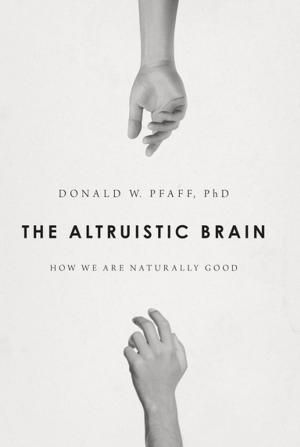Disorientation and Moral Life
Nonfiction, Health & Well Being, Psychology, Human Sexuality, Emotions, Religion & Spirituality, Philosophy, Ethics & Moral Philosophy| Author: | Ami Harbin | ISBN: | 9780190611743 |
| Publisher: | Oxford University Press | Publication: | April 1, 2016 |
| Imprint: | Oxford University Press | Language: | English |
| Author: | Ami Harbin |
| ISBN: | 9780190611743 |
| Publisher: | Oxford University Press |
| Publication: | April 1, 2016 |
| Imprint: | Oxford University Press |
| Language: | English |
This book is a philosophical exploration of disorientation and its significance for action. Disorientations are human experiences of losing one's bearings, such that life is disrupted and it is not clear how to go on. In the face of life experiences like trauma, grief, illness, migration, education, queer identification, and consciousness raising, individuals can be deeply disoriented. These and other disorientations are not rare. Although disorientations can be common and powerful parts of individuals' lives, they remain uncharacterized by Western philosophers, and overlooked by ethicists. Disorientations can paralyze, overwhelm, embitter, and misdirect moral agents, and moral philosophy and motivational psychology have important insights to offer into why this is. More perplexing are the ways disorientations may prompt improved moral action. Ami Harbin draws on first person accounts, philosophical texts, and qualitative and quantitative research to show that in some cases of disorientation, individuals gain new forms of awareness of political complexity and social norms, and new habits of relating to others and an unpredictable moral landscape. She then argues for the moral and political promise of these gains. A major contention of the book is that disorientations have 'non-resolutionary effects': they can help us act without first helping us resolve what to do. In exploring these possibilities, Disorientation and Moral Life contributes to philosophy of emotions, moral philosophy, and political thought from a distinctly feminist perspective. It makes the case for seeing disorientations as having the power to motivate profound and long-term shifts in moral and political action. A feminist re-envisioning of moral psychology provides the framework for understanding how they do so.
This book is a philosophical exploration of disorientation and its significance for action. Disorientations are human experiences of losing one's bearings, such that life is disrupted and it is not clear how to go on. In the face of life experiences like trauma, grief, illness, migration, education, queer identification, and consciousness raising, individuals can be deeply disoriented. These and other disorientations are not rare. Although disorientations can be common and powerful parts of individuals' lives, they remain uncharacterized by Western philosophers, and overlooked by ethicists. Disorientations can paralyze, overwhelm, embitter, and misdirect moral agents, and moral philosophy and motivational psychology have important insights to offer into why this is. More perplexing are the ways disorientations may prompt improved moral action. Ami Harbin draws on first person accounts, philosophical texts, and qualitative and quantitative research to show that in some cases of disorientation, individuals gain new forms of awareness of political complexity and social norms, and new habits of relating to others and an unpredictable moral landscape. She then argues for the moral and political promise of these gains. A major contention of the book is that disorientations have 'non-resolutionary effects': they can help us act without first helping us resolve what to do. In exploring these possibilities, Disorientation and Moral Life contributes to philosophy of emotions, moral philosophy, and political thought from a distinctly feminist perspective. It makes the case for seeing disorientations as having the power to motivate profound and long-term shifts in moral and political action. A feminist re-envisioning of moral psychology provides the framework for understanding how they do so.















